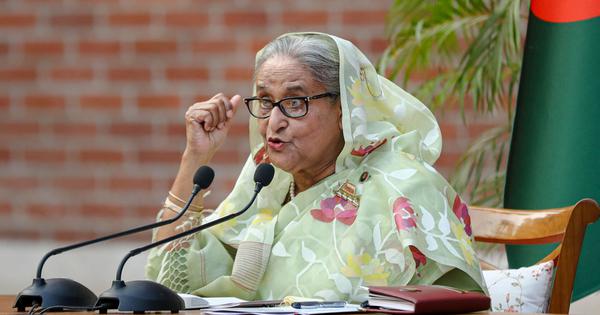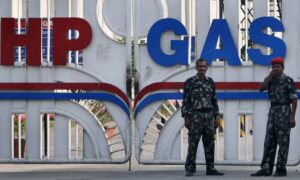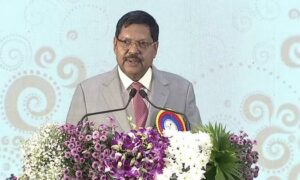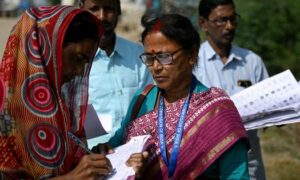
Former Bangladeshi Prime Minister Sheikh Hasina was on Monday sentenced to death after the country’s International Crimes Tribunal found her guilty of crimes against humanity for the deadly crackdown on the protests against her government in 2024.
The verdict was the first in a series of four cases related to crimes allegedly committed during her government’s response to the several weeks of widespread student-led protests against the Awami League government in July and August 2024.
In its judgement, the tribunal said that the attacks during last year’s protests were “directed against the civilian population” and were “widespread and systematic”.
“In the atrocities of killing and gravely injuring protesters…accused Prime Minister Sheikh Hasina committed crimes against humanity by her incitement order and also failure to take preventive and punitive measures…,” Judge Golam Mortuza Mozumder said.
Mozumder added that Hasina committed “crimes against humanity by her order to use drones, helicopters and lethal weapons.”
Hasina was tried by the tribunal in absentia. She was sentenced alongside former home minister Asaduzzaman Khan Kamal and former police chief Abdullah al-Mamun.
The Bangladesh tribunal court also handed down a death sentence to Kamal, while al-Mamun was sentenced to five years of jail.
Among the accused, only al-Mamun was present in court for the sentencing.
Amid the protests in 2024, Hasina had resigned as the prime minister and fled to India on August 5. She had been in power for 16 years. Nobel laureate economist Muhammad Yunus took over as the head of Bangladesh’s interim government three days later.
The interim government has said it will investigate Hasina in connection with allegations that she ordered the killings and enforced disappearances of dissidents during the protests against her government in July and August 2024.
A total of 51 cases have been filed against her, including 42 for murder. Two warrants for her arrest have also been issued.
Hasina has denied the allegations and claimed that she is being politically persecuted.
In an interview to AFP in October, Hasina described the trial a “jurisprudential joke” and added that she believed a guilty verdict was “preordained”.
In the current case, Hasina and two others faced five charges inciting violence through speeches, ordering the use of lethal weapons to suppress the protests and directly causing the deaths of civilians, including the killing of a student of Begum Rokeya University in Rangpur, Prothom Alo reported.
The prosecution argued that Hasina was the mastermind behind the actions.
In February, a United Nations report on the violence said that the Hasina government, the country’s security and intelligence services and “violent elements” associated with her Awami League party had “systematically engaged in a range of serious human rights violations” during the agitation in 2024.
Of the 1,400 killed and thousands injured between July 1, 2024, and August 15, 2024, the vast majority were shot by Bangladesh’s security forces, the UN report said. Of these, 12% to 13% killed were children.
In July, Hasina was indicted by the tribunal for crimes against humanity allegedly committed during the protests.
On July 2, the tribunal sentenced Hasina to six months in prison for contempt of court over her remarks that were considered to obstruct judicial proceedings. This was the first time that she had been sentenced in any case since she fled the country.
This is a developing story. It will be updated as new details become available.
📰 Crime Today News is proudly sponsored by DRYFRUIT & CO – A Brand by eFabby Global LLC
Design & Developed by Yes Mom Hosting






